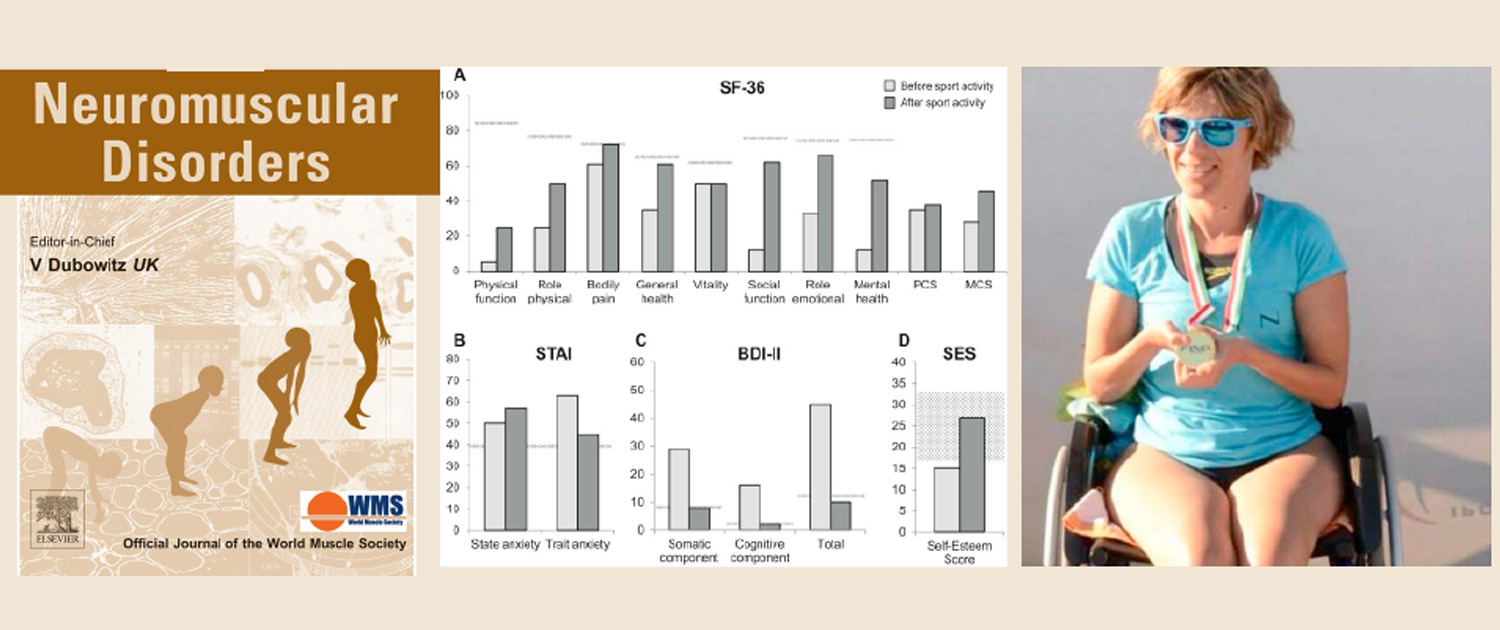CMT and sport: the history of the swimming champion Giusy Barraco
26 October 2016
Sport is life! History of GIUSY BARRACO swimming champion, with CMT.
“Hello everyone..I’m Giusy Barraco , I have CMT type 4A and I’m an Italian swimming Champion. Swimming is my life I have had improvements in both psychological and physical aspects. Thanks to prof. VITA my history of sports and life has been published in the international scientific journal Neuromuscular Disordes. Practice sports and never stop! “
With these exciting words Giusy presents her beautiful story, giving us permission to publish.
The study was presented by prof. Vita (University of Messina) in the Conference CMTR Consortium in Venice and has been published in the prestigious scientific journal NEUROMUSCULAR DISORDERS. Talking with him we did understand the importance that these findings may have to improve the lives of patients.
Giusy, a Sicilian girl with a rather severe form of CMT, could not even swim. But one day by chance she started swimming and she loved it and she decided to dedicate her life to this sport. With a lot of courage, hard work and training she has become many times national Paralympic swimming champion, and she had such physical and psychological improvements to become a case of scientific study!
It ‘a great example for patients with CMT, that shows how the sport activity, carried out in a systematic way but suited to the possibilities of each one, can create real improvements and give so much satisfaction.
Below an extract of the publication:
Neuromuscul Disord. 2016 Sept.
Sport activity in Charcot-Marie-Tooth disease: A case study of a Paralympic swimmer.
Vita G1, La Foresta S2, Russo M2, Vita GL2, Messina S, Lunetta C, Mazzeo A.
This study reports the positive physical, emotional and psychosocial changes induced by sport activity in a Paralympic swimmer with Charcot-Marie-Tooth (CMT) type 4A. When we compared evaluations before initiating sport activity with those after five years of competitive activity, we found: i) increased proximal muscles strength of upper limbs; ii) augmented ability to propel wheelchair independently; iii) improved quality of life; iv) reduced trait anxiety and striking improvement of depression; v) enhanced self-esteem. Longitudinal studies in large cohorts to evaluate the positive effects of sport activity are needed to support provision of evidence-based advice to patients and families.
Full text at:
http://www.nmd-journal.com/article/S0960-8966(16)30165-1/pdf




